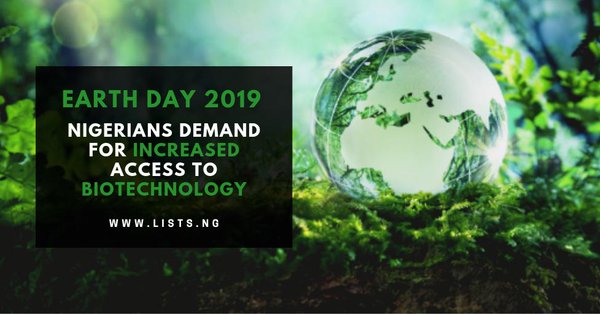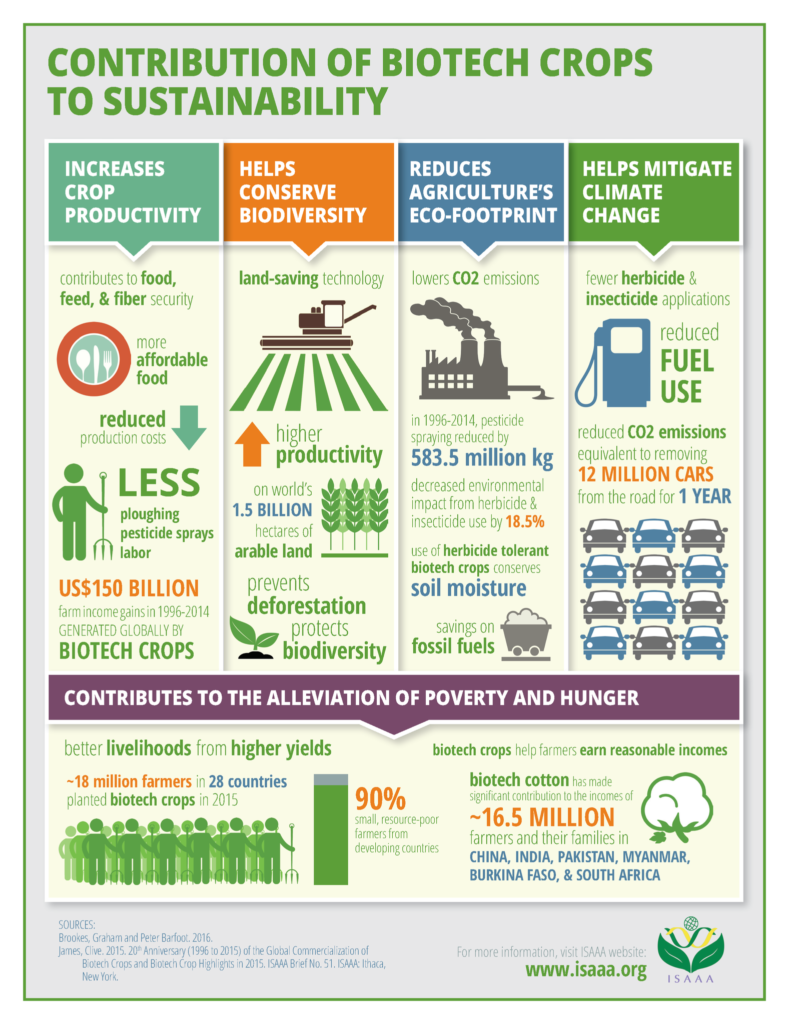How can agricultural biotechnology help save the planet?
That question was the focus of a Tweet “thunderclap” chat hosted by the Nigeria Alliance for Science to mark yesterday’s celebration of Earth Day. Conducted under the handle @ScienceAllyNG, the chat attracted more than 1,000 top Nigerian Twitter influencers, as well as participants in Ghana, Kenya, Uganda and the United States.
Employing bold hashtags like #BiotechRocks, #WeNEEDBiotech, FactsBasedScience and #EarthDay2019, the thunderclap reached about 1.4 million people and created over 20 million impressions.

The chat, which lasted for over an hour, answered salient questions on biotechnology, genetically modified organisms, why Earth needs this technology and the role it plays in conserving the planet.
How biotech helps
Agriculture and associated activities directly affect the earth as farmers till the soil and apply fertilizers and pesticides to nourish and preserve their products for better yield.
Scientists, researchers and agriculture experts contend that modern agricultural biotechnology essentially aims to bring respite to Mother Earth by curbing negative farming practices that harm the earth.
Biotechnology encompasses a wide range of procedures for modifying living organisms for human purposes. Genetic engineering has been used for thousands of years to advance agriculture, food production and medicine to the immense benefit of humanity.

Key takeaways
Though participants expressed different opinions and beliefs during the chat, they reached consensus on the most striking benefits of agricultural biotechnology, in regard to saving the earth. They include:
Farming on less land
Two practices that deplete the earth are destroying forests and other wild lands for agricultural fields, and tilling the soil. Applying biotechnology in farming would lead to less encroachment into nature because farmers can achieve greater yields with genetically modified (GM) crops. This would invariably lead to less plowing. Optimizing the practice of “no till” through the use of crops with herbicide-tolerant traits also helps to conserve topsoil and moisture.
Drought-tolerant crops
Through genetic engineering, researchers have been able to alter the genes of plants to require less water, which is crucial to limiting our impact on the environment. For example, researchers have successfully used transgenic mutation to modify the genes of corn to increase drought tolerance. By altering crops to require less hydration, farmers are able to limit their water use and waste. This is especially important in dry regions with limited access to water, a chronic challenge shared by many developing countries.
Insect-resistant crops
Inherent resistance to insects and diseases is one of the most widely desired traits in GM crops, and it can help save the environment, too. When faced with insect infestation, farmers are typically forced to spray crops with pesticides, a need that is reduced or eliminated by resistant crops. Additionally, crops that have been modified to be disease-resistant tend to produce higher yields, thus reducing the amount of land and resources needed to grow the crop and lessening the farmer’s environmental impact.
The Nigerian success story
Keying into the benefits offered by agricultural biotechnology, the Nigerian government recently approved two GM crops: insect-resistant Bt cotton and Bt cowpea. Dr Rose Gidado, country coordinator of the Open Forum on Agricultural Biotechnology (OFAB) in Africa, Nigeria Chapter, believes the decision will midwife the rebirth of the nation’s comatose textile industry and close the nation’s deficit in terms of producing cowpea, a staple food crop.
The release of these GM crops would save the earth by significantly reducing the number of pesticide sprays applied by farmers to protect their crops from insect infestation, she Tweeted, while increasing their productivity per hectare and allowing them to keep the money now spent on heavy doses of pesticides.
Call to action
The chat ended with a call for various governments to remove unnecessary bureaucratic bottlenecks, ensure compliance with best practices, educate people and continuously engage stakeholders to ensure safe modern biotechnology is practiced for the benefit of the people.
